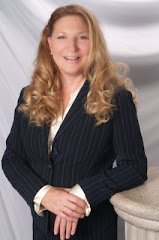Thanks for your help!
Kim Duclos - Coldwell Banker Wardley - (702) 521-3939
Please spread the word!
Habitat Needs Families!
Habitat for Humanity’s Home Ownership Program has two immediate openings for two homes!
We have a completed two bedroom home at our Tamarus Project:
This home is located off of Tamarus & Warm Springs and may occupy a family of:
Single Parent with one child
Single Parent with two children of the same sex
Two seniors
Framing will begin on a three bedroom home at our Henderson Project:
This home is located off of Sunset and Boulder Hwy and may occupy a family of:
Three to Six people
(Depending on the make up of the family and children)
Please spread the word to your friends, family
and co-workers!
Habitat Families are selected based on their need for adequate housing, their ability to pay a zero interest mortgage, and their willingness to partner up with Habitat.
Habitat Families must complete a minimum of 300 hours of sweat equity per adult working on their home and the homes of other Habitat families.
Habitat Families must pay closing cost of approximately $2000-$2500 and purchase first year’s homeowners insurance approximately $400-$500.
Prior to submitting an application, interested applicants must:
1. Meet the minimum eligibility requirements
Click the link below for more info
http://www.habitatlasvegas.org/site/c.khLPKZPELoF/b.3892327/k.A0DC/Home_Ownership.htm
2. Attend a Habitat Home Ownership Orientation
3. Complete 25 hours of Volunteer Work with Habitat
If you have any questions please contact:
Jackie Valdera
Family Services Program Manager
(Se Habla Español)
702-638-6477
Jackie@habitatlasvegas.org
SPREAD THE WORD!!
Habitat Needs Families!
Habitat for Humanity’s Home Ownership Program has two immediate openings for two homes!
We have a completed two bedroom home at our Tamarus Project:
This home is located off of Tamarus & Warm Springs and may occupy a family of:
Single Parent with one child
Single Parent with two children of the same sex
Two seniors
Framing will begin on a three bedroom home at our Henderson Project:
This home is located off of Sunset and Boulder Hwy and may occupy a family of:
Three to Six people
(Depending on the make up of the family and children)
Please spread the word to your friends, family
and co-workers!
Habitat Families are selected based on their need for adequate housing, their ability to pay a zero interest mortgage, and their willingness to partner up with Habitat.
Habitat Families must complete a minimum of 300 hours of sweat equity per adult working on their home and the homes of other Habitat families.
Habitat Families must pay closing cost of approximately $2000-$2500 and purchase first year’s homeowners insurance approximately $400-$500.
Prior to submitting an application, interested applicants must:
1. Meet the minimum eligibility requirements
Click the link below for more info
http://www.habitatlasvegas.org/site/c.khLPKZPELoF/b.3892327/k.A0DC/Home_Ownership.htm
2. Attend a Habitat Home Ownership Orientation
3. Complete 25 hours of Volunteer Work with Habitat
If you have any questions please contact:
Jackie Valdera
Family Services Program Manager
(Se Habla Español)
702-638-6477
Jackie@habitatlasvegas.org
SPREAD THE WORD!!







